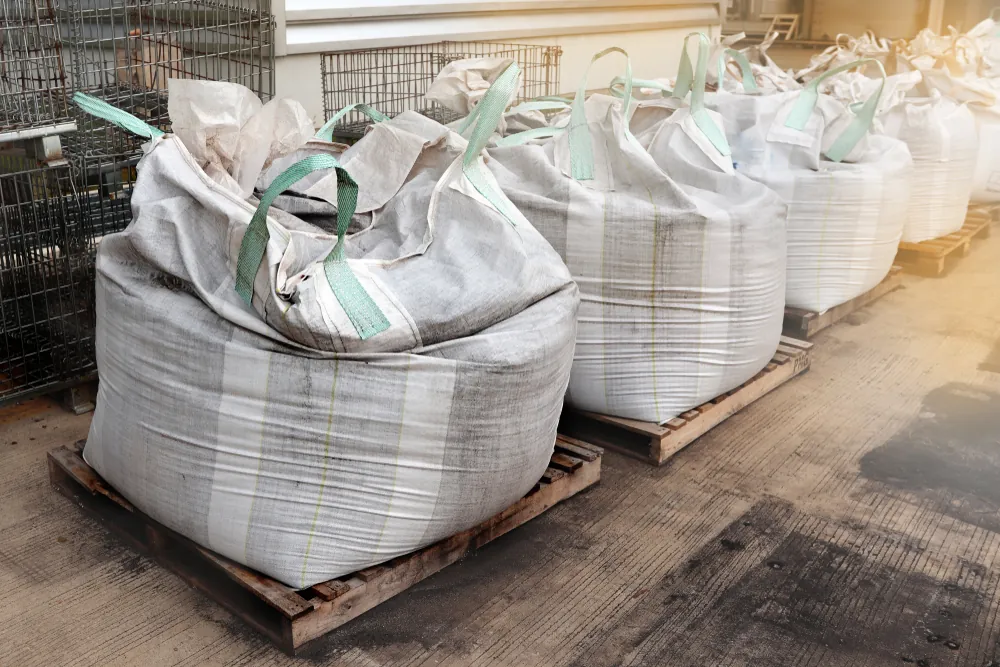
Shipping Waste and Recyclable Materials
With our comprehensive logistics network, we provide excellent transportation services, guaranteeing the safe and timely delivery of these materials.
How to Ship Waste and Recyclable Materials
Shipping waste and recyclable materials require careful planning and adherence to various regulations to ensure safe and environmentally friendly transportation. This article provides an overview of what constitutes waste and recyclable materials, guidelines for packaging and shipping, and an exploration of the associated costs.
Guidelines for Shipping Waste and Recyclable Materials
Proper packaging is crucial to ensure the safety of the materials during transit and minimize the risk of leaks, spills, or contamination. Here are some guidelines:
- Use sturdy containers: Select packaging materials that can withstand the weight and nature of the waste/recyclables. Consider using durable drums, bins, or heavy-duty bags.
- Secure packaging: Seal containers tightly using suitable tapes or fasteners to prevent any leakage or spillage. Use absorbent materials like sawdust or pads to manage potential leaks if necessary.
- Labeling and documentation: Mark packages with appropriate labels indicating the contents, handling instructions, and any specific regulations or warnings. Maintain accurate documentation for regulatory compliance.
- Hazardous waste precautions: If shipping hazardous waste, follow specific guidelines such as using UN-approved containers, proper labeling, and providing necessary documentation as required by local regulations.
Thousands of businesses trust FreightCenter to move their freight faster, smarter, and cheaper! From unbeatable rates to top-notch service, our customers are raving about their shipping success.
See why they keep coming back!
Award-Winning Service, Trusted by Shippers Everywhere!
- 2021, 2017 & 2016 Food Logistics’ Top Green Providers
- 2021 & 2018 Supply & Demand Chain Executives’ Pros to Know: Matthew Brosious
- 2020 & 2019 Top Food Logistics’ 3PL & Cold Storage Provider Award
- 2020 & 2019 Business Observer’s Top 500 Companies on the Gulf Coast
- 2020 & 2017 SmartWay® Transport Partner
- 2020 & 2017 Food Logistics’ Champions: Rock Stars of the Supply Chain
- 2020 Best of Palm Harbor Awards for Local Businesses
- 2017 Green Supply Chain Award from Supply & Demand Chain Executive
- 2017 Tampa Bay Business Journal Heroes at Work
- 2016, 2015, & 2012 Food Logistics Top 100 Software and Technology Providers
- 2013 Tampa Bay Business 100 by Tampa Bay Business Journal
- 2013 Top 100 Great Supply Chain Partners by SupplyChainBrain
- 2012 TIA Samaritan Award Honorable Mention
- 2012, 2011 & 2010 TBBJ Fast 50 Recipient
- 2013, 2011, & 2010 Diversity Business Top Businesses

Why Choose FreightCenter for Shipping Waste and Recyclable Materials?
Customers should choose FreightCenter for shipping waste and recyclable materials because of our extensive expertise in handling hazardous and environmentally sensitive cargo. We prioritize safety and compliance, offering specialized equipment, trained professionals, and a network of carriers experienced in waste management. Trust us for reliable, efficient, and responsible transportation solutions.
Understanding Waste and Recyclable Materials
Waste materials refer to any substances discarded or no longer useful, often posing a potential threat to human health or the environment. Examples include household trash, industrial waste, hazardous materials, and non-biodegradable items like plastics.
On the other hand, recyclable materials can be processed or reused to manufacture new products. Typical recyclables include paper, cardboard, glass, certain plastics, metals, and electronic waste (e-waste).
Compliance and Regulations
It is essential to adhere to local, national, and international regulations to ship waste and recyclable materials. These regulations may vary depending on the type of material being sent and the destination. Familiarize yourself with relevant laws and guidelines, such as those set by the Environmental Protection Agency (EPA), International Maritime Organization (IMO), or Basel Convention.
Environmentally Friendly Shipping
- Reduce packaging waste: Opt for minimal packaging and use eco-friendly materials such as biodegradable or recyclable options.
- Consolidate shipments: Combine multiple shipments into a single load to reduce the overall carbon footprint.
- Optimize routing: Plan routes to minimize distances traveled and avoid unnecessary detours.
- Consider alternative modes: Explore greener transportation options like rail or waterways when feasible.
- Comply with regulations: Follow waste disposal and recycling regulations to ensure proper handling and prevent environmental contamination.
To create value for our customers by delivering customized shipping solutions that meet their unique needs and to fulfill shipping demands from simple to complex with expertise, guidance and ingenuity.
LTL shipping involves combining multiple small shipments from different customers onto one truck, allowing each customer to share the shipment cost. Trust the experts at FreightCenter to give you the best prices and the most comprehensive options for all your LTL freight shipping needs.
Truckload shipping, also known as full truckload (FTL), is a transportation option for freight that requires the entire trucks trailer space. Unlike LTL shipping, FTL shipping is reserved for larger commodities that exceed LTL weight and size limits, typically weighing more than 20,000 pounds or having dimensions that exceed 12 feet in length, 8 feet in width, and 8 feet in height. We deliver optimized solutions for full or partial truckloads and competitive dry van, flatbed, and refrigerated freight pricing. We can cover your full truckload shipping needs.
Nationwide Expedited Trucking services move your freight securely and rapidly. Your freight requires fast delivery; our freight shipping experts can get your shipment fast, whether in one large box or a full truckload. Expedited shipping is a transportation option that prioritizes the speed of delivery for freight that needs to be shipped quickly. This can be especially important for urgent situations, such as engine repairs or replacements for critical machinery.
Specialized is a transportation option for items that require specialized handling, equipment, or shipping conditions. Specialized shipments may include high-value cargo, oversized cargo, or cargo that require temperature-controlled transportation. The most reliable Specialized Freight Services rates from all the top carriers are just a few steps away. From white glove service to international shipping, we've got you covered.


How are Waste and Recyclable Materials Transported?
Trucks: Commonly used for local transportation, providing flexibility and accessibility for our customers.
Trains: Usually employed for bulk shipments, offering high capacity and fuel efficiency.
Ships: Mostly used for large quantities of materials, providing cost-effective solutions.

